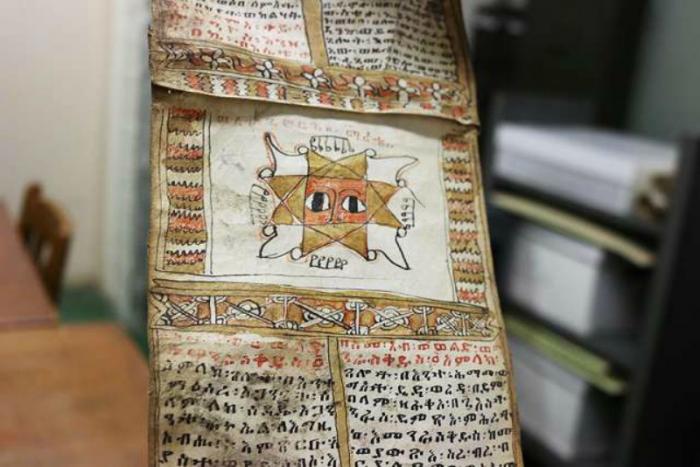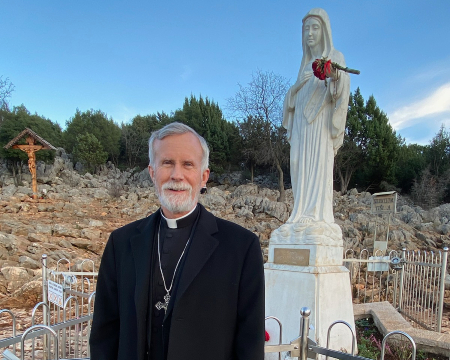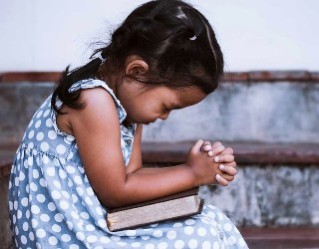We ask you, humbly: don't scroll away.
Hi readers, it seems you use Catholic Online a lot; that's great! It's a little awkward to ask, but we need your help. If you have already donated, we sincerely thank you. We're not salespeople, but we depend on donations averaging $14.76 and fewer than 1% of readers give. If you donate just $5.00, the price of your coffee, Catholic Online School could keep thriving. Thank you.Help Now >
Why does the Catholic University of America have a collection of over 600 Ethiopian magic scrolls?
FREE Catholic Classes
With a recent gift of more than 600 handmade leather manuscripts, the Catholic University of America is now home to one of the most important collections of Ethiopian religious manuscripts in the United States.

Hundreds of Ethiopian religious scrolls now reside in Washington D.C.
Highlights
Catholic Online (https://www.catholic.org)
1/11/2017 (7 years ago)
Published in U.S.
Keywords: Ethiopia, religious, text, Washington D.C.
Washington D.C. (CNA/EWTN News) - The collection includes Christian, Islamic, and "magic" texts. It is the largest collection of Ethiopian Islamic manuscripts outside of Ethiopia.
Dr. Aaron M. Butts, a Professor of Semitic and Egyptian Languages and Literature at Catholic University, said in a statement that the manuscript collection "provides unparalleled primary sources for the study of Eastern Christianity" and reaffirms the school's standing as one of the leading places to study Near Eastern Christian language, literature, and history.
The manuscripts are handmade of goat, sheep, or calf hides, and most of them date to the eighteenth or nineteenth centuries.
In total, the collection includes 125 Christian manuscripts, such as psalters, liturgical books, and hagiographies. Within the 215 Islamic manuscripts of the collection are Qurans and commentaries on the Quran.
The collection also contains more than 350 so-called "magic" scrolls - Christian prayer talismans. Each talisman, Butts told CNA, is handwritten by a "debtera" - a lay person or cleric in the Ethiopian Church, and contains the name of the person for whom it is written.
The scrolls are worn around the neck, and are created to help the wearer with a certain kind of ailment, such as headaches. Many of these talismans are dedicated to women's ailments - such as childbirth or painful menstruation - and Butts said it is clear that some of these "magic" scrolls have been passed down through the generations from mother to daughter.

An Ethiopian scroll in the Gerald and Barbara Weiner collection at the Catholic University of America in Washington, D.C. (Addie Mena/CNA).
Butts also noted that at various times in Ethiopian history, use of these prayers has been discouraged within the Ethiopian Church. Because of this status, as well as the domestic, personal nature of their use, he continued, not much research has been done on these devotional tools.
Many of the manuscripts in the collection, including the "magic" scrolls, contain intricate illuminations and other decorations on the scrolls.
According to Butts, the collection's age is fairly typical for Ethiopian manuscripts. He explained that while many Western and Middle Eastern manuscripts can date back centuries and even more than a millennium, Ethiopian scripts tend to be much more recent, in part because Ethiopians still use the manuscripts in daily life for prayer and reading, and also because the alternating rainy and dry climate destroys the hides.
The manuscripts will be stored at CUA's Institute of Christian Oriental Research (ICOR), a research auxiliary of the Semitics department. The donation expands the already-impressive collection of more than 50,000 books and journals as well as antiquities, photographs, and archival materials documenting early Christianity in the Middle East ICOR houses.
The new collection, valued at more than $1 million, was donated to Catholic University by Chicago collectors Gerald and Barbara Weiner. Butts told CUA that the couple wanted the Ethiopian people to use the scrolls for prayer, along with making the manuscripts available for study by students and researchers.
The Washington, D.C. area is home to one of the largest Ethiopian populations outside of Ethiopia, and there are several Ethiopian Orthodox and Ethiopian Catholic churches, along with cultural centers, in the area. CUA officials are currently working with the community to coordinate the scrolls' use.
---
'Help Give every Student and Teacher FREE resources for a world-class Moral Catholic Education'
Copyright 2021 - Distributed by Catholic Online










 Daily Readings for Saturday, April 20, 2024
Daily Readings for Saturday, April 20, 2024 St. Marian: Saint of the Day for Saturday, April 20, 2024
St. Marian: Saint of the Day for Saturday, April 20, 2024 Children's Prayer For Parents: Prayer of the Day for Saturday, April 20, 2024
Children's Prayer For Parents: Prayer of the Day for Saturday, April 20, 2024
